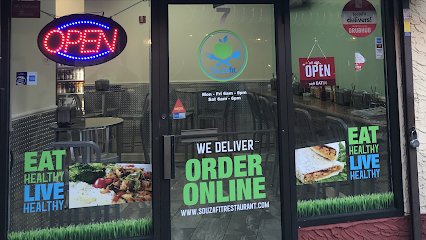Embarking on the journey of muscle building while adhering to a plant-based diet is an endeavor both rewarding and entirely achievable. By focusing on consuming a variety of plant proteins and ensuring adequate calorie intake, you can effectively increase your muscle mass without animal products. This includes integrating nutrient-dense staples such as legumes, tofu, quinoa, and leafy greens into your meals, which provide the protein and essential nutrients necessary for muscle growth.
You might think that a vegan diet limits your options for building muscle, but with strategic meal planning and a focus on nutrition, you can enjoy the benefits of a plant-based lifestyle while achieving impressive gains. Whole plant foods can not only support muscle development but also offer the added advantage of enhancing overall health and wellness.
Supplementing wisely with plant-based protein powders or essential amino acids can further support your muscle-building goals. Ensuring balance and variety in your diet is key to maintaining energy levels and meeting nutritional requirements. As you dive deeper into the specifics, you'll find that achieving your fitness goals on a plant-based diet is not only possible but also sustainable and rewarding.
Understanding Plant-Based Nutrition for Muscle Building
Building muscle on a plant-based diet requires careful attention to nutrient intake. Key aspects like protein, vitamins, and minerals play a crucial role. Balancing these nutrients ensures effective muscle synthesis and growth.
The Role of Protein in Muscle Synthesis
Protein is crucial for muscle building as it provides essential amino acids. Essential amino acids cannot be produced by the body and must be obtained through diet. Plant-based proteins such as lentils, quinoa, and hemp seeds are excellent sources. While plant proteins may lack some amino acids, combining different sources can provide a complete profile. Incorporating a variety of protein sources ensures your body receives the necessary building blocks for muscle repair and growth.
Vitamins and Minerals Essential for Muscle Growth
Vitamins and minerals are vital in supporting muscle development and overall health. Vitamin B12 is crucial, often supplemented in plant-based diets as it’s primarily found in animal products. Minerals like iron and calcium are essential for maintaining energy levels and bone health. Sources include leafy greens and fortified plant milks. Adding omega-3 fatty acids, found in chia seeds and flaxseeds, helps reduce inflammation and support joint health. Antioxidants present in fruits and vegetables aid in recovery.
Balancing Macronutrients and Micronutrients
Achieving a balance between macronutrients—proteins, carbohydrates, and fats—and micronutrients like vitamins and minerals is critical for muscle growth. A plant-based nutrition plan should focus on diverse food groups to ensure adequate nutrient intake. Carbohydrates, found in whole grains and fruits, provide energy for workouts. Healthy fats, like those from avocados and nuts, support hormone production and absorption of fat-soluble vitamins. By thoughtfully planning meals, you can create a balanced diet conducive to muscle building.
Optimal Plant-Based Foods for Building Muscle
Building muscle on a plant-based diet is achievable through careful planning and choice of foods. Focusing on protein-rich sources, incorporating whole grains and legumes, and including healthy fats are key strategies.
Top Protein-Rich Plant Foods
Protein is essential for muscle growth, and you can meet your needs with plant-based sources. Beans, lentils, and chickpeas offer not only protein but also fiber, which aids digestion. Tofu and tempeh are versatile options that can be cooked in various ways. Incorporate quinoa as it’s a complete protein containing all nine essential amino acids. Adding hemp seeds and black beans enhances your meals with necessary amino acids and nutrients.
Incorporating Whole Grains and Legumes
Whole grains and legumes provide complex carbohydrates and protein needed for energy and muscle repair. Brown rice, oats, and quinoa are excellent sources, providing lasting energy while supporting muscle recovery. Legumes like lentils and** black beans** are staples that should be included regularly to benefit from their high fiber and protein content. These foods support your body's nutritional needs in a plant-based diet.
The Importance of Healthy Fats in Muscle Development
Healthy fats are vital as they help with hormone production, including testosterone, which plays a role in muscle growth. Nuts and seeds, such as almonds and chia seeds, provide healthy fats alongside additional protein. Plant-based oils like olive oil also contribute valuable unsaturated fats. Including almond milk and avocados can add variety and richness to your diet, ensuring you get all the benefits of healthy fats.
Exercise and Training Strategies on a Plant-Based Diet
To effectively build muscle while following a plant-based diet, it is essential to utilize targeted exercise strategies. This includes focusing on strength training for hypertrophy, maintaining cardiovascular health, and ensuring proper recovery and muscle repair through nutrition and rest.
Strength Training and Hypertrophy
Strength training is crucial for muscle-building. It involves resistance exercises such as weightlifting and bodyweight workouts. These exercises stimulate muscle protein synthesis, promoting growth and strength.
Aim for compound movements like squats, deadlifts, and bench presses. These exercises engage multiple muscle groups, optimizing hormone production and muscular development. A balanced training plan will alternate between heavy lifting sessions and lighter ones, ensuring muscles have time to grow and adapt.
Cardiovascular Health and Muscle Maintenance
Maintaining cardiovascular health is vital for supporting overall fitness and muscle maintenance. Activities like running, cycling, or swimming enhance endurance and improve blood circulation, delivering nutrients to muscles and aiding recovery.
Balance cardio workouts with strength training by scheduling low-intensity sessions on non-lifting days. This approach helps maintain composure while focusing on muscle-building efforts, ensuring cardiovascular health without impeding strength gains.
Recovery and Muscle Repair Post-Workout
Effective recovery strategies are critical for muscle repair and growth. Incorporating adequate rest periods and quality sleep supports the repair process, allowing muscles to rebuild stronger.
Plant-based diets rich in whole foods provide essential nutrients like omega-3s and antioxidants, which reduce inflammation and accelerate recovery. Consume protein-rich meals post-workout to enhance nutrient delivery and aid repair. Including stretching or yoga can also promote flexibility and reduce the risk of injury.
Crafting a Muscle-Building Plant-Based Meal Plan
To build muscle on a plant-based diet, focus on a well-structured meal plan that includes sufficient calories, protein, and essential nutrients. Attention to meal timing and thoughtful supplement use are crucial for optimizing muscle gain.
Daily Eating Patterns for Muscle Gain
Start by determining your caloric needs to support a calorie surplus, providing energy for workouts and recovery. Incorporate a variety of plant-based protein sources, such as tofu, tempeh, legumes, and quinoa. Use the following table to guide protein intake:
|
Protein Source |
Protein Content (per serving) |
|
Tofu (½ cup) |
10 grams |
|
Lentils (1 cup cooked) |
18 grams |
|
Quinoa (1 cup cooked) |
8 grams |
|
Tempeh (½ cup) |
15 grams |
Include complex carbohydrates like sweet potatoes and whole grains to fuel workouts. Pay attention to fiber intake to maintain healthy digestion and energy levels. Integrate unsaturated fats from sources such as avocados and nuts to support overall health without excess saturated fat.
Pre- and Post-Workout Nutrition
Protein timing plays a key role here. Prior to your workout, consume a balanced meal with carbohydrates and protein, like a smoothie with plant-based protein powder and fruits.
After exercising, focus on post-workout meals rich in proteins and carbs to support muscle repair. Consider options like a chickpea salad or a tofu stir-fry. Mixing spirulina and nutritional yeast into meals can provide additional nutrients like zinc and BCAAs to assist recovery.
Post-workout nutrition is crucial for energy restoration and muscle repair.
Supplements and Additional Nutritional Considerations
Incorporate plant-based protein powders to ensure adequate protein intake, particularly for vegan athletes or bodybuilders. Soy products and hempseed are excellent options for complete protein sources.
Consider supplements such as BCAAs to complement your protein intake, especially if your diet lacks variety. Spirulina can contribute additional protein and micronutrients.
Monitor your BMR to adjust caloric intake for muscle growth. Paying attention to micronutrients like zinc and vitamin B12 is vital for those on a strict vegan lifestyle. Implement nutritional yeast to fortify meals with extra protein and B vitamins.






